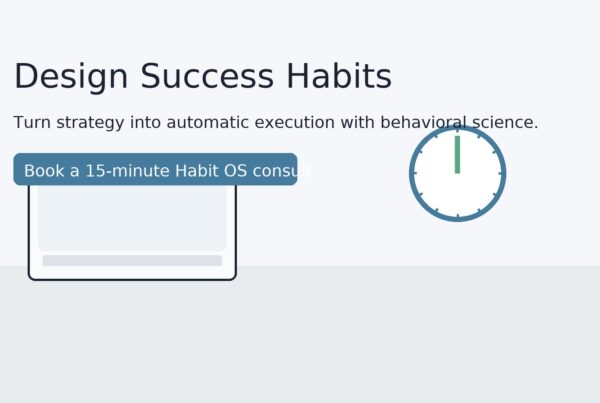Mastering the Art of Recruiting: Finding the Right Salesperson for Your Business Team
Welcome to the exciting world of sales recruitment! The art of recruiting and finding the right salesperson for your business team can be a game-changer. But the process isn’t just about examining resumes and conducting interviews. It’s a fine art that involves understanding the sales role, crafting an attractive job posting, sourcing candidates strategically, honing in on the interview process, evaluating candidates beyond their resumes, making decisions, extending offers, and ensuring successful onboarding and retention of hiring salespeople. Ready to master this art? Let’s dive in!

Key Takeaways
- Recruit the right salesperson for your team by understanding their role and defining expectations.
- Attract top talent with attractive job postings, competitive compensation packages, and strategic candidate sourcing.
- Retain top performers through continuous learning opportunities, mentorship programs & recognition of high performance!
Understanding the Sales Role and Your Business Needs

Imagine having a top-notch sales team that perfectly aligns with your business needs and philosophy, consistently meeting and exceeding targets. Sounds like a dream, doesn’t it? But it can be a reality if you understand the sales role and your business needs, as well as having a well-structured sales department.
Before you initiate the sales hiring process, it’s vital to delineate the sales position, pinpoint the necessary skills and experiences, and align these with your company’s culture and values. Here’s how you can do it:
Define the Sales Position
Defining sales positions is like drawing a map for a treasure hunt. You need to clearly outline the role, the responsibilities, and the kind of treasure (or talent) you’re seeking. When defining the sales position, consider your business’s profile, management style, and the maturity of your sales process.

Is your business operating in a B2B or B2C environment? What’s the size of your target market? What’s the duration of your sales cycle? Having crystal clear answers to these questions and communicating them effectively is the first step towards more qualified leads and attracting the right salesperson.
Identify Essential Sales Skills and Experience
After defining the sales position, it’s time to identify the essential sales skills and experiences you’re looking for in a sales rep. This isn’t just about how many years of sales experience they have or whether they’ve met their previous sales targets. It’s about their:
- Communication skills
- Discovery capabilities
- Business acumen
- Ability to tell a compelling story about your product or service
- Active listening skills
- Product expertise
- Negotiation capabilities
So, when you’re assessing candidates, look beyond the resume. Peek into their skillset and see if they have what it takes to be a part of your successful sales and marketing team.
Align with Company Culture and Values
Finally, ensure that your new salesperson is a cultural fit for your company. Hiring someone who doesn’t align with your company’s values and culture is like trying to fit a square peg in a round hole – it’s frustrating and unproductive for hiring sales reps and everyone involved.
Look for candidates who share your company’s mission and principles. They should understand what it takes to be a successful salesperson within your specific team. By aligning candidates with your company’s culture and values, you’ll be setting them, and your company, up for long-term success.
Unlock Your Business Potential:
Ready to elevate your business and personal goals to new heights? Don’t let another day pass by without maximizing your potential.
Click here to book your personalized coaching session with a seasoned Vancouver-based executive coach. Together, we’ll transform challenges into opportunities and dreams into realities.
Book your call now and start your journey towards exceptional success!
Crafting an Attractive Job Posting

Now that you understand the sales role and your business needs, let’s move on to the next step – crafting an attractive job posting for top sales representatives. Think of your job posting as a magnet. Its job is to attract top sales talent and make them want to work for your company.
To create a distinctive job posting, it’s necessary to employ captivating job titles, underline growth opportunities, and encompass competitive compensation packages. Here are detailed insights into each of these aspects:
Utilize Engaging Job Titles
The title of your job posting is the first thing potential candidates see. So, make sure it’s engaging and accurately describes the role. A well-crafted job title can draw in a larger pool of applicants, thereby increasing your chances of finding the right salesperson.
However, remember that an engaging job title should be accurate and realistic to avoid attracting unqualified candidates.
Highlight Growth Opportunities

The best sales professionals always seek opportunities to grow and advance their careers. Therefore, it’s essential to highlight growth opportunities in your job postings. Show potential candidates that your company values their professional growth and offers room for advancement.
This could include personal and professional development opportunities, mentorship, or a clear career progression path within your sales organization.
Include Competitive Compensation Packages
Finally, don’t forget to include a competitive compensation package in your job posting. This goes beyond just the base salary – it also includes commission, bonuses, and other benefits. A competitive compensation package can be a powerful motivator for top sales talent.
So, be transparent about what you’re offering and set the right expectations right from the start.
Sourcing Candidates Strategically

You’ve defined the role, identified the skills, and crafted an attractive job posting. The next step? Sourcing candidates strategically. This is where you go out into the world (or, more likely, the internet) and find potential great sales reps and candidates. But this isn’t a random search. You need a strategy.
This strategy could involve leveraging professional networks, tapping into your current team’s network, or utilizing specialized sales recruiters.
Leverage Professional Networks
Professional networks are a goldmine of top sales talent. Platforms like LinkedIn give you access to an extensive pool of potential candidates. But it’s not just about posting your job and waiting for applications.
Engage with potential candidates, join relevant groups, and leverage your company’s LinkedIn page to attract and connect with top sales talent.
Tap into Your Current Team’s Network
Your current sales team can be an excellent resource for sourcing potential candidates. After all, they know your company culture, they understand the job role, and they likely have connections in the industry. Encourage your current team here to share the job posting within their networks. You might be surprised at the quality of candidates this can bring in.
Utilize Specialized Sales Recruiters
Specialized sales recruiters can be a game-changer in your search for top sales talent, including sales reps. These recruiters have extensive networks and deep market insights, allowing them to find and attract candidates who are perfectly suited to your business needs, such as sales representatives and managers.
So, consider partnering with a specialized sales recruiter to hire sales reps if you’re struggling to find the right salesperson for your team.
The Interview Process: A Fine Art

Congratulations! You’ve sourced some potential candidates, and now it’s time to move on to the interview process. But interviewing is a fine art, and it requires careful planning and execution.
The goal here is to assess the potential candidate’s skills, fit, and potential success in the role. This could involve conducting pre-screening calls, designing behavioural-based interview questions, and observing soft skills and body language.
Conduct Thorough Pre-Screening Calls
Before you invite candidates for an in-person interview, it’s crucial to conduct a pre-screening call. This can weed out candidates who don’t meet your minimum qualifications, saving you valuable time and resources.
During these calls, ask questions that give you valuable insights into the candidate’s sales understanding and personal approach. This will help you assess whether they are a potential fit for the role and worth inviting for an in-person interview.
Design Behavioral-Based Interview Questions

Interview questions based on past behaviour can offer useful insights into a candidate’s problem-solving skills, communication abilities, and resilience. These questions center on a candidate’s past conduct, which can be a reliable gauge of their future performance.
So, when you’re interviewing, ask questions that uncover the candidate’s ability to handle real-world sales challenges.
Observe Soft Skills and Body Language
While technical skills are essential in sales, soft skills and body language can also provide valuable insights into a candidate’s potential success. Observe the candidate’s communication skills, their confidence, and how they connect with others.
Body language can reveal a lot about a candidate’s attitude and emotions, so keep an eye on their eye contact, gestures, and overall demeanour during the interview.
Evaluating Sales Candidates Beyond the Resume

By now, you’ve probably realized that hiring the right salesperson involves more than just looking at their resume. You need to dig deeper and evaluate their skills, their potential, and their fit for your company. This can involve implementing role-playing scenarios, analyzing their problem-solving abilities, and reviewing their approach to lead generation.
Implement Role-Playing Scenarios
Role-playing scenarios can give you a glimpse of how a candidate might perform in real-world sales situations. These scenarios can be a valuable tool to assess a candidate’s sales abilities and comfort level in various situations.
So, consider implementing role-playing scenarios in your interviews to see how candidates handle different customer situations and showcase their sales skills.
Analyze Problem-Solving Abilities
In sales, problem-solving is a crucial skill. Salespeople often face challenges and obstacles, and their ability to solve problems can significantly impact their success. By presenting candidates with real-world sales challenges during the interview, you can observe their thought processes and the solutions they come up with.
This will give you valuable insights into their problem-solving abilities and their potential success in the role.
Review Their Approach to Lead Generation
Lead generation is a critical aspect of sales, and a candidate’s approach to it can tell you a lot about their potential success. How do they identify potential clients? How do they pursue leads? How do they convert leads into customers? By reviewing their approach to lead generation, you can assess their ability to identify and pursue potential clients effectively.
Decision-Making and Extending the Offer

You’ve interviewed the best candidates around, evaluated their skills, and now it’s time to make a decision. But decision-making is more than just choosing the candidate with the highest score on your evaluation sheet. It involves comparing candidates against a scorecard, negotiating more than just their salary, and communicating your decision promptly.
Compare Candidates Against a Scorecard
A scorecard can be a valuable tool to evaluate candidates objectively. It allows you to compare candidates based on specific job-critical criteria, ensuring a fair and confident evaluation.
By comparing candidates against a scorecard, you can make better hiring decisions and ensure that you select the most suitable candidate for the role.
Negotiate More Than Money
When it comes to extending a job offer, remember that you’re not just negotiating a salary. Consider factors such as professional development opportunities, flexible work arrangements, and additional benefits.
By negotiating more than just money, you can provide a more attractive offer to top sales talent.
Communicate Your Decision Promptly
Once a decision is made, it’s important to convey it promptly. Regardless of a candidate’s success, they should be informed of the outcome at the earliest. Timely communication not only aids in securing top sales talent but also ensures a positive candidate experience.
Onboarding and Integration into the Sales Force
Congratulations! You’ve hired a new salesperson. But the journey doesn’t end here. Onboarding and integrating your new hire into the sales force is a critical next step.
This involves creating a structured onboarding process, establishing clear goals and expectations, and fostering mentorship and team collaboration.
Create a Structured Onboarding Process

A well-organized onboarding process can pave the way for your new hire’s success. It acquaints them with the company culture, values, and sales processes, providing them with the necessary tools and information to excel in their role. Thus, it’s worth investing time and resources into developing a comprehensive onboarding process that not only welcomes new hires but also aids their initial months.
Establish Clear Goals and Expectations
Clear goals and expectations can help your new sales hire understand their role and responsibilities. They provide direction and give your new hire a clear path to follow. So, from day one, make sure your new salesperson knows what’s expected of them and what success looks like.
Foster Mentorship and Team Collaboration
Finally, foster mentorship and team collaboration among your sales teams. Pair your new hire with an experienced team member who can guide them and share their knowledge and experiences.
Encourage open communication and collaboration within the team to promote a supportive and cooperative work environment.
Retaining Top Sales Talent
Attracting and hiring the right salesperson is important, but retaining them is equally crucial. After all, a high-performing sales team is a stable one. But how do you retain top sales talent?
This involves encouraging continuous learning and development of sales leaders, recognizing and rewarding high performance, and creating a positive sales culture.
Encourage Continuous Learning and Development
Fostering a culture of continuous learning and development is instrumental in retaining top sales talent. Providing training programs, workshops, and avenues for professional growth not only aids your salespeople in enhancing their skills but also demonstrates your investment and commitment to their professional development and success.
Recognize and Reward High-Performance
Recognizing and rewarding high sales performance can motivate your salespeople and make them feel appreciated. This could be through incentives, bonuses, or public acknowledgment of their achievements.
When your salespeople feel appreciated, they’re more likely to stay with your company and continue performing at their best.
Summary
We’ve covered a lot of ground in this guide – from understanding the sales role and crafting an attractive job posting to strategically sourcing candidates, conducting successful interviews, evaluating candidates beyond their resumes, making decisions, extending offers, and ensuring successful onboarding and retention. Each step of the process is important and requires careful planning and execution. But remember, the key to hiring the right salesperson lies in understanding your business needs, setting clear expectations, and creating a positive and supportive work environment. So, are you ready to build your dream sales team?
Achieve Success with Expert Guidance:
Are you a business owner or key personnel aiming for the pinnacle of success? The right guidance can make all the difference. Book a consultation call with an experienced business coach today, and discover how tailored strategies can lead you to achieve your personal and professional aspirations.
Click here to book your call TODAY!
Your path to success is just a call away. Book now and embark on a transformative journey!”
Frequently Asked Questions
What strategy do you use to recruit salespeople?
Recruiting good salespeople involves considering how a potential employee would fit in, creating an enticing job description, posting on job boards, asking for referrals, screening candidates evaluating their skills, and asking the right questions.
How do I find the right salesperson?
Find the right salesperson by clearly defining the ideal candidate profile, setting up criteria, crafting a compelling job description, using social media and job posting websites, implementing an employee referral program, looking for candidates’ passion and comfort level, considering their past performance and sales style, hiring for attitude and aptitude, focusing on emotional intelligence, and evaluating goals, motive and drive.
How can I define the sales position effectively?
Define the sales position effectively by taking into account your business’s profile, management style and the maturity of your sales process; this will help you accurately articulate the role and responsibilities and attract the right candidates.
What should I consider when extending an offer to a candidate?
When extending an offer to a candidate, consider factors such as salary, professional development opportunities, flexible work arrangements, and additional benefits to make it more attractive. Use a motivating tone to increase the chances of success further.
How can I create a structured onboarding process for new hires?
Creating a structured onboarding process for new hires involves defining their role and responsibilities, providing comprehensive training on company culture, values and processes, and offering ongoing support and feedback. This ensures successful onboarding and ensures employees quickly become productive contributors to the team.



